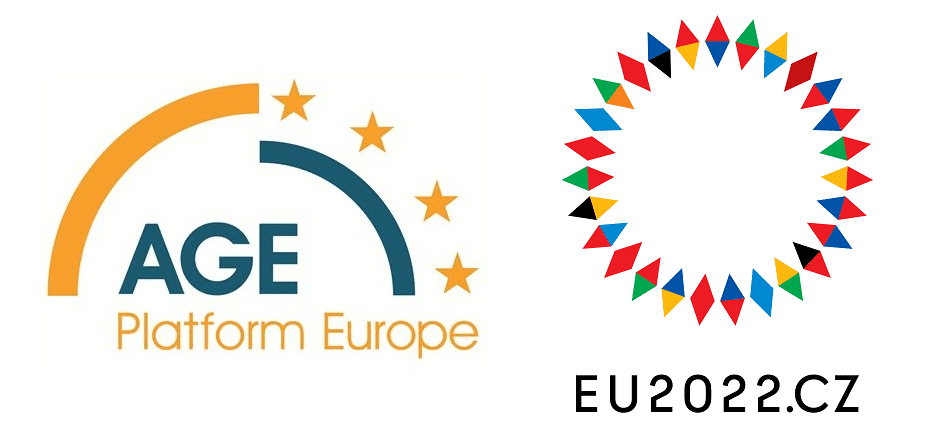
Credit: Beth Jnr on Unsplash
The end of the year is often associated with warmth, togetherness and solidarity. Some recent developments, including our Annual Conference and some EU council decisions, have confirmed this trend, looking at how to improve the quality of care and support inclusion in older age.
AGE Annual Conference ‘A Europe that cares is a Europe that empowers’ on 18th November 2022 brought together policymakers, civil society, service providers and international organisations to discuss how to improve care in the EU. This was also the theme of some important decisions made by the December Council of Ministers in the field of social affairs (EPSCO Council), which marked important advances in supporting care via the EU Care Strategy, but also on minimum income. Over the last few weeks, we has been active in making these decisions happen. AGE also supported a campaign to establish a European harmonised number for senior helplines, at the margins of this EPSCO Council.
Let us look at what these initiatives might change!
‘My body is taken care of, but they forgot my mind’
AGE’s Annual Conference put the focus on empowerment of older persons

- a better respect of the person,
- adequately fund care
- greater choice in the form of care one wish to have – home care or community-based care.
“The best care is the one that is not needed”
An emphasis was also made on the need to strengthen prevention to reduce the increase of care needs in the future. Informal carers need to be better supported, as they are an indispensable link between care providers and the person in need for care. However, formal services need to be available, affordable and of good quality, so that informal care becomes a choice and not an obligation.
Focus on older people in the Ukraine war
AGE also took a wider angle by presenting the work on the rights of older persons at international and global level in the Open-Ended working Group on Ageing and the Madrid International Plan of Action on Ageing. As the humanitarian disaster caused by the Russian invasion of Ukraine is raging, an unprecedented situation of humanitarian need unfolded with older persons at their centre: older persons forming 25% of the Ukrainian pre-war population, they are exposed to the direct impact of the war on the frontline, but also confronted with the lack of experience and protocols to help older persons in humanitarian emergencies as they are displaced or become refugees. Stronger protection of the human rights of older persons at the international level can lead to a reflection process which also places the empowerment of older persons at the heat of humanitarian policies.
Read our report on the Annual Conference
Council recommendation on long-term care: beginning of a new chapter

A wider, person-centred approach
In the Recommendations, the definition of long-term care encompasses all services which help people in performing daily living activities, so placing the person first. It sets out several principles to increase access to affordable care services, and first sets out abstract, yet ambitious, quality principles and quality-assurance mechanisms for long-term care.
The Council further recommends that member States meaningful involve all stakeholders, identify national coordinators or coordination mechanisms for the strategy, and communicates measures taken in the framework of the Recommendation to the Commission. The measure also incorporates a governance mechanism with the potential to move things forward.
During the negotiations, AGE pointed out several shortcomings of the original proposal, notably that there should be more references to the notion of choice and participation of the person in need for care, better protection from abuse and neglect, a rehabilitative vision of care and including more aspects for prevention. These points have been partially integrated by the Council, which is very positive.
The ball now in the court of Member States
In the follow-up, it will be important for AGE members and other national stakeholders to work with national governments on the implementation of these principles. While the real effort for the Care Strategy has to be national or even local, the fact that there now is an EU-wide reference with criteria on which the EU member States want to advance together sends a powerful signal, and can be a trigger for change: Long-term care systems need to change, moving from the paternalistic management of persons with reduced capacities towards empowering services that maintain independence and personal autonomy of citizens throughout their lives.
Read more in our article
Research supports policy recommendations on long-term care
AGE is involved in multiple research projects that support the empowerment of older people and quality long-term care systems in the EU – and beyond:
- InAdvance: an early assessment of palliative care needs by older people themselves, at the time of diagnosis and in consultation with professionals. AGE members and project partners are pushing for a more appropriate awareness and legal context in Europe to enable older people to live and end their lives with dignity.
- Valuecare: a new shift to value-based integrated care which values the outcomes – rather than inputs – assessed by patients themselves in consultation with professionals.
- SHAPES: AGE’s focus in the project that intends to develop a large-scale platform for integrated care is to empower older people in health and care decision-making
- Covid resilience: strengthening resilience of older persons regarding long-term care in the Western Balkans (Albania, Bosnia and Herzegovina, Kosovo, Montenegro, North Macedonia, Serbia)
- EU Navigate: supporting older people with cancer in navigating care services
Adequate minimum income throughout the life-course: a long-awaited EU initiative

The recommendation sets out principles for adequate minimum income schemes – which, in the scope of the text, include minimum pensions – with the aim to ‘ensure a life in dignity at all stages of life’. It also sets principles for the access to enabling and essential services and labour market integration for those who can work.
Defining adequacy
Adequacy is defined as the national at-risk of poverty threshold or the monetary value of necessary goods and services or other, comparable levels. It also calls for minimum income levels to be set out by a transparent methodology, and the ‘adequate’ level should be achieved by Member States by 2030 at the latest. Also, the recommendation asks for regular review of minimum income levels to maintain its adequacy over time. For some categories, it is recommended that minimum income is not attributed only on the basis of the overall household income, but on the basis of the individual situation. The recommendation wants to ensure universal coverage of minimum income for all persons lacking sufficient resources, by setting out clear criteria for eligibility, means testing that reflect the standard of living in the member state and different households’ needs and fast decisions. A particularly important point recommends that there is continuity in minimum income for as long as persons sufficient resources, even if they for example start part-time or low-paid work.
Furthermore, Member States commit to ensure that all eligible persons actually take up their right to minimum income by reducing the administrative burden, promote user-friendly information and reaching out specifically to the most excluded. The Recommendation proposes individual approach with individual inclusion plan containing joint objectives and timelines and an individual package of support needs.
Positive, yet not compulsory
Overall, this recommendation includes very good principle for the basis of a common policy on minimum incomes, and thereby ensuring that people stay socially integrated throughout their lives. Still, this Recommendation consists of soft law in an area where several initiatives of soft law have failed in ensuring every EU citizen is covered by this essential safety net. AGE remains convinced that to anchor this right in the practice of all Member States, a Framework Directive would be necessary and achievable.
Towards an harmonised helpline for older people?
Ahead of the EPSCO meeting, we called for an another issue to be debated by EU Ministers: the adoption of an harmonised helpline for older people, as proposed by Czech Minister Jurecka and supported by Elpida, our member Czechia. The issue was unfornatulety was not on the agenda of the December meeting, but will pursue our effort, given that at least 10 of the 27 Member States already support the proposal.
More information:
> On the EPSCO Council and the EU Care Strategy
- Outcomes of the December EPSCO Council
- Our article on the Council Recommendation for Access to Affordable, High-Quality Long-Term Care
- Our view on the EU Care Strategy, as proposed by the Commission
- EPSCO Council article on the EU Care Strategy and adopted version of the Council Recommendation on Long-Term Care
> On the recommendation on adequate minimum income
- AGE’s input to the EU consultation ahead of the proposal for a recommendation on minimum income
- Link to the text of the Council Recommendation on Adequate Minimum Income Ensuring Active Inclusion
- AGE report: ‘Keeping the Energy. The Impact of the 2022 Inflation Surge on Older Persons’.






